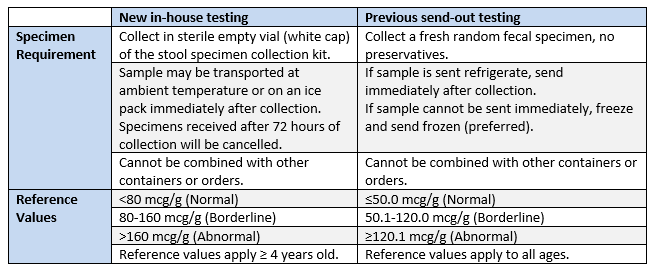Folate (aka Folic Acid) is a test that requires the patient to be fasting in order for the results be accurate. Results are falsely elevated if the patient is not fasting. Spectrum Health Laboratories recently updated our system to hard stop a test from being collected if the patient is not fasting. Please remind your patients to fast 8 hours prior to having their blood drawn.
Spectrum Health Laboratories recommends:
• No caloric or caffeine intake for 8-12 hours prior to testing. Do not eat or drink anything except normal amounts of plain water. This also includes no smoking, chewing gum, candy, cough drops, etc.
• Take normal dosages of medications unless the provider has instructed otherwise.
Click here for a list of tests the require or recommend fasting.

